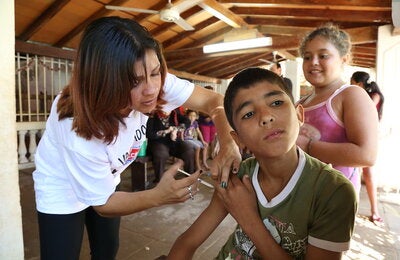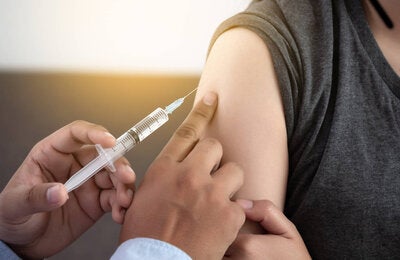Chaired by Sir Michael Marmot, new group will investigate the dynamics of gender, ethnicity, human rights, and equity and their impact on health
Washington, D.C., 11 May 2016 (PAHO/WHO) — The Pan American Health Organization/World Health Organization (PAHO/WHO) launched a new Commission on Equity and Health Inequalities in the Region of the Americas this week, during a two-day event focused on the profound effects that non-health social factors have on health outcomes.
The commission will lead the Review of Equity and Health Inequalities in the Americas, the first large-scale effort to gather evidence on health inequities in the Region of the Americas. Both the commission and review are part of a partnership between PAHO/WHO's secretariat and member countries and the Institute of Health Equity at University College London (UCL). The commission will be chaired by Sir Michael Marmot, director of the UCL Institute of Health Equity and former chair of WHO's global Commission on Social Determinants of Health. It will bring together more than a dozen leading international experts on health policy and social determinants of health.
"PAHO has commissioned the Review of Equity and Health Inequalities in the Americas to address one broad and pervasive problem: factors that should not determine health outcomes are, in fact, deciding them for an enormous number of people," said PAHO/WHO Director Carissa F. Etienne. "Characteristics such as gender, ethnicity, legal and socioeconomic status are among the greatest risk factors for ill health, injury and mortality across the Americas."
The commission will investigate how these factors influence health in the Americas and will make concrete recommendations for action to address them with an eye to reducing or eliminating the health equity gaps they produce.
"The Commission on Equity and Health Inequalities in the Americas presents us with an unprecedented opportunity to investigate the fundamental causes of health inequalities in this region," said Sir Michael. "There is no biological reason why these inequalities exist. The fact that they do is a matter of social injustice. This commission brings together the expertise required to address them properly and sustainably."
Etienne noted that the commission's work, which will take two years, will support PAHO/WHO's efforts to help countries in the Americas achieve the new Sustainable Development Goals (SDGs) in the Region of the Americas.
"The advent of the Sustainable Development Goal era poses a challenge to us all to build a more equitable and sustainable world in every dimension, from education to environment to health," said Etienne. "By looking critically at the fundamental sources of the inequity that frustrate our efforts to improve health and human development, we open up a chance to make the world of 2030 look much brighter than anything we could conceive of today."
In addition to Sir Michael Marmot, the members of the Commission on Equity and Health Inequalities in the Region of the Americas include Paulo Buss and Cesar Victora of Brazil, Nila Heredia of Bolivia, Tracy Robinson of Jamaica, Cindy Blackstock of Canada, Mirna Cunningham of Nicaragua, Maria Paula Romo of Ecuador, Pastor Murillo of Colombia, Mabel Bianco of Argentina, and David Satcher, Kathy Greenlee and Victor Abramovich of the United States.



